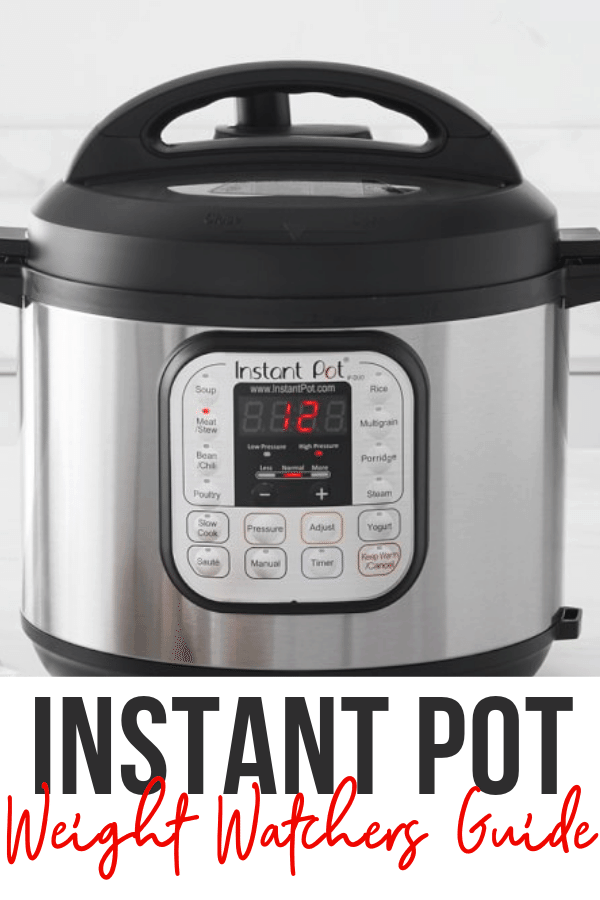Climatarian Diet: Is It Eco-Friendly?
The Climatarian Diet emphasizes that individuals reduce the intake of animal foods like meat and dairy, especially red meat, to reduce global warming and other environmental damages created due to such processed foods. The Climatarian Diet mostly involves plant-based produce that causes less impact on the environment.
The Climatarians are those interested in the betterment of our planet and conduct campaigns to create awareness about global warming and healthy ways to reduce their carbon footprints through plant-based foods that are locally produced.
How Does This Climatarian Diet Impact Weather?
With the growing population and time moving ahead, food habits too have changed a lot – from people having natural, unprocessed foods that never made any difference in the cycle to having highly-processed foods that need the use of fuel, electricity, and many more that is harmful to the environment.
Agriculture, particularly the production of meat, dairy, and eggs, is a significant source of greenhouse gas emissions. These foods require more resources, like land, water, and feed, to produce than plant-based options and also produce more methane, a potent greenhouse gas, during digestion.
Therefore, by reducing the consumption of animal, dairy, and processed foods, you can reduce the carbon footprint polluting the environment. Hence, the main purpose of the Climatarian Diet is to prevent global warming and reduce climatic changes.
Consuming locally grown fruits and vegetables and avoiding packaged and processed foods may significantly reduce environmental impact.
Different Types Of Climatarian Diets
There are several types of diets the Climatarians follow, including Vegan, Vegetarian, Pescatarian, and Flexitarian. All these diets follow the climatarian concept that helps reduce environmental pollution due to highly-processed foods and animal products.
Most of these diets include only plant-based foods and natural products that support improving physical health and environmental wellness.
Vegan Diet
In a Vegan Diet, people don’t consume animal foods, including dairy, honey, eggs, and meat. They tend to have only plant-based foods. This diet also includes plant-based alternatives for dairy products like vegan butter, vegan milk, vegan cheese, and many more.
Vegetarian/Plant-Based Diet
In Vegetarian Diets, people have plant-based foods and mostly incorporate fruits and vegetables. Sometimes, they also include eggs and dairy products in their diet.
Pescatarian Diet
Pescatarian Diet is a variation of the Vegetarian Diet. It allows fish and other kinds of seafood along with plant-based produce but excludes animal products.
Flexitarian Diet
Flexitarian Diet mostly focuses on fruits, vegetables, and other plant-based foods. Apart from that, it also allows you to include animal products in smaller amounts.
Sustainable Meat Diet
The Climatarian Diet also permits modest amounts of sustainable animal products, including eggs, meat, and dairy, along with a climate-friendly diet.
List Of Foods On The Climatarian Diet
Food To Eat
- Fruits and vegetables (especially local produce)
- Pulses
- Legumes
- Whole Grains
- Nuts and Seeds
- Mushrooms
- Fish and other Sea Food
Foods To Limit/Avoid
- Avocado
- Mangoes
- Pork
- Sugar
- Poultry
- Egg
- Dairy
- Red Meat
- Palm Oil
- Restaurant Foods
- Packaged Foods
Climatarian Diet Recipes
Recipe #1: Salad
Chopped Tomato, Cucumber, Chickpeas, Coriander Leaves, Palak, Sunflower seeds (or any other seed that you like), raisins, and a dressing made with vinegar and olive oil.
Recipe #2: Smoothie
1 whole-wheat English muffin, 1 Apple, and 1 cup of smoothie made with ¼ cup blueberries, ¼ cup blackberries, ¼ cup raspberries, ½ banana, and some Oat milk; blend well making your smoothie.
Recipe #3: Seaweed Salad
Mix 25 grams of seaweed thinly sliced, ½ carrot sliced thinly in stripes, 1 red chili, 1 tablespoon white roasted sesame seeds, 1 tablespoon awase miso, 1 tablespoon soy sauce, 1 tablespoon rice vinegar, 1 tablespoon mirin, 1 tablespoon sesame oil, 1 tablespoon lemon juice, and sea salt.
Recipe #4: Apple Oatmeal
Add 1 shredded apple, ½ tablespoon of Chia Seeds, 1 ½ teaspoons of Maple Syrup, 1 pinch of salt to taste, 1 cup of unsweetened plant-based or vegan milk, and ¼ teaspoon of cinnamon powder. Mix it all well together and refrigerate for an hour before serving.
Recipe #5: Baked Potatoes & Tofu
Ingredients: 6 oz Potatoes, 3 oz Tofu, ½ tablespoon of Olive Oil, ¼ teaspoon of Chili Flakes, 1½ cups of Baby Spinach, 1 cup of boiled Chickpeas, ¼ cup of Butternut Squash cubes, 1 tablespoon of Lemon Juice, ½ teaspoon of Salt, and ½ teaspoon of Pepper.
Set the oven to 200 Degrees C; cut the Potatoes and Tofu into cubes; Season the Potato and Tofu cubes with salt, Pepper, and Chili Flakes, and place the Potatoes on a Flat Pan and bake it for 15 minutes. Take out the pan, add the Tofu cubes, and bake for another 5 minutes. Transfer it to a bowl, add the Baby Spinach, Boiled Chickpeas, and Butternut Squash cubes and Lemon Juice to it and mix well — It's ready for serving.
Recipe #6: Veggie Noodle and Nut Sauce
Ingredients: 1 Garlic, 1 Red Onion, 20g Brown Rice Syrup, 80g Button Mushroom, 10g Coriander, 1 Carrot, 1 Red Chili, 2 pieces Whole-Wheat Noodles nests, 25ml Soy Sauce, 1 Bell Pepper, 60g Cashew Nuts.
Preheat your Skillet. Once done, add the Cashew nuts to it, and roast for about 4 mins on average (they should’ve turned colors but not burn!). Once done, set aside to let cool. Peel the carrot, head off the Bell Peppers, and slice them into thin tiny cubes; slice down the Button Mushroom too and boil them in a Pot Pan. Slice the Red Onion and Mince the Garlic.
Add about 1 tablespoon of cooking oil to the skillet and heat it; once done, add all the ingredients to it and half the minced garlic with a pinch of salt. Cook for 15 minutes until they're caramelized. Simultaneously, boil the noodle with salt until they're soft to bite, and rinse and drain the noodles. Grind down half of the cooled cashews, add the Brown Rice Syrup, remaining Garlic, 2 tablespoons of Olive Oil, and blend well. There you go with the Cashew Nut Sauce.
Fine chop the Coriander and remaining Cashew Nuts. Once the veggies are done cooking, add the Boiled Noodles, Cashew Nut Sauce, Soy Sauce, and half the chopped Coriander and mix well. Season with the remaining crushed Cashews and Coriander. This sauce is ready for serving now!
Pros And Cons Of The Climatarian Diet
Pros
- Helps to reduce Greenhouse Gas Emissions and saves the environment and natural resources – eating local produce and unprocessed plant-based foods will support reducing Greenhouse Gas Emissions.
- Encourages to have lower animal food – as you follow a plant-based diet, you’ll be encouraged to lessen your meat consumption.
- Can be more Nutritious at times (totally depends upon your regular intake of food) – If you intake highly nutritious plant-based foods, you will gain more nutrients to support your body's health.
Cons
- You will miss out on the basic key nutrients making you feel inadequate and unsatisfied with your diet – as you stop the intake of meat in your diet, you may miss out on many of the key nutrients you gain from meat.
- There is no mention of exercise – only consuming a diet alone may not be healthy enough to keep your body stable and hydrated.
- Vegans and vegetarians may have difficulty gaining protein as they eat only plant-based foods. It'll be hard for them to add protein-rich foods, alternatives, and other basic nutrients.
The Takeaway
A group of people follow the Climatarian Diet to reduce their carbon footprint and increase their intake of plant-based foods and local produce to lessen the greenhouse effect on the environment. Several types of diets can be included in this, most famously vegan and vegetarian diets.
Though the Climatarian Diet may positively impact an individual's health, it also becomes a topic of discussion when it comes to meeting dietary needs when consuming plant-based produce.
FAQs
Q: Is the Climatarian Diet healthier than Other Diets that include Meat?
A: Mostly yes, as they have an intake of Plant-based foods, which makes them healthier, but at times they may lack proteins that can be greatly gained through meat intake.
Q: Can a Vegetarian Diet reduce cholesterol?
A: Yes, Vegetarian Diets are lower in fats and high in fiber, so they can help you reduce cholesterol.
Q: Which diet contributes the least to climate change?
A: Plant-based diets like Vegan, Vegetarian, Climatarian, and many more. These diets are those that contribute the least to change in the climate.
References
https://www.health.com/nutrition/climatarian-diet
https://www.everydayhealth.com/diet-nutrition/climatarian-diet/https://draxe.com/nutrition/climatarian-diet/








